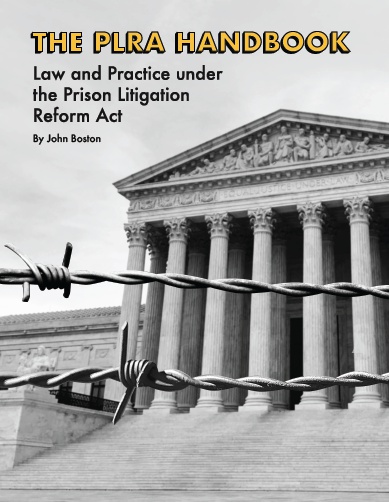Article addresses PLN managing editor's private prison study ethics complaint
Professor of Public Policy and Administration, Medgar Evers College, City University of New York in Brooklyn, New York
For-Profit Prison Corporations Are at It Again
The latest effort by for-profit prison corporations to laud their superiority over publicly-run prisons is supported by two Temple University professors who failed to initially disclose that their research study was funded by the private corrections industry. This pertinent fact was not revealed until Alex Friedmann, Managing Editor of the Prison Legal News filed an ethics complaint with Temple University officials that the 2013 analysis conducted by the professors has come under scrutiny for its purported findings.
An unfortunate result of the paper not being challenged initially is that policy makers made decisions based on their potentially biased research -- their initial failure to disclose the funding source potentially biases their paper. The professors' study found, unsurprisingly, that private prisons save money, perform comparably to government-run prisons, and that they facilitate much-needed competition. In lieu of this recent discovery of the funding source, I decided to review their study to assess a few of the salient findings.
Most studies attempting to make comparisons between public and private prisons find that private prisons are more effective and save money, determine there is little difference between the two, or that the comparisons are inconclusive. Studies which determine that private prisons save money are usually underwritten by the private corrections industry. Studies which conclude that cost savings are difficult to determine and savings are nominal are usually conducted by independent agencies such as the U.S. Government Accountability Office (GAO). Studies conducted by the Arizona Auditor's Office, and the University of Utah Criminal Justice Center appear to meet the criterion of being independent. As someone who has studied prison privatization extensively, I find that disparate research findings highlight the inability to make an apples-to-apples comparison between public and privately-run prisons. Readers of such research promulgating private prisons as superior should read with skepticism any findings that suggest apples-to-apples comparisons are made between public and private prisons.
An excellent embellishment of the point regarding the lack of transparency in these comparisons is the fact that, unlike private prisons, public prisons house all type of prisoners. Private prisons are less likely to run maximum-security facilities, less likely to house death-row inmates, or inmates who are more costly to incarcerate, including those with serious medical conditions or mental illnesses. Given the cost differential between the types of prisoners housed in public and private prisons, any analysis devoid of the costs associated with housing high-risk prisoners and high-cost prisoners with extreme medical conditions is not a definitive and true analysis. As a result, no generalizations can be drawn from incomplete studies. Given the many variables omitted from their analysis, the study conducted by the Temple University professors is not credible.
The debate regarding publicly-managed prisons and private prisons could be easily settled if private prisons supported the Private Prison Information Act (PPIA) of 2013, which calls for more accountability and transparency by the private prison industry.
Since taxpayers fund the operations of federal and state private prisons, these facilities should be subject to Freedom of Information (FOI) requests which would force private prisons to report critical data allowing researchers to make the apples-to-apples comparisons. Researchers would also be better-positioned to determine questions about which entity provides a better quality of operations. As it stands, for-profit prison providers have lobbied against the PPIA since it was first introduced in Congress in 2005. The bill has died each subsequent year and still has not passed.
A question that begs answering is, "Are private prisons afraid of transparency?" I'd say the response by private prison companies is: " Why have transparency when we can pay for the studies that say what we want?"
http://reason.org/news/show/private-prisons
http://ucjc.utah.edu/adult-offenders/private-prison
http://www.azauditor.gov/Reports/State_Agencies/Agencies/Corrections_Department_of/Performance/10-08/10-08.pdf







